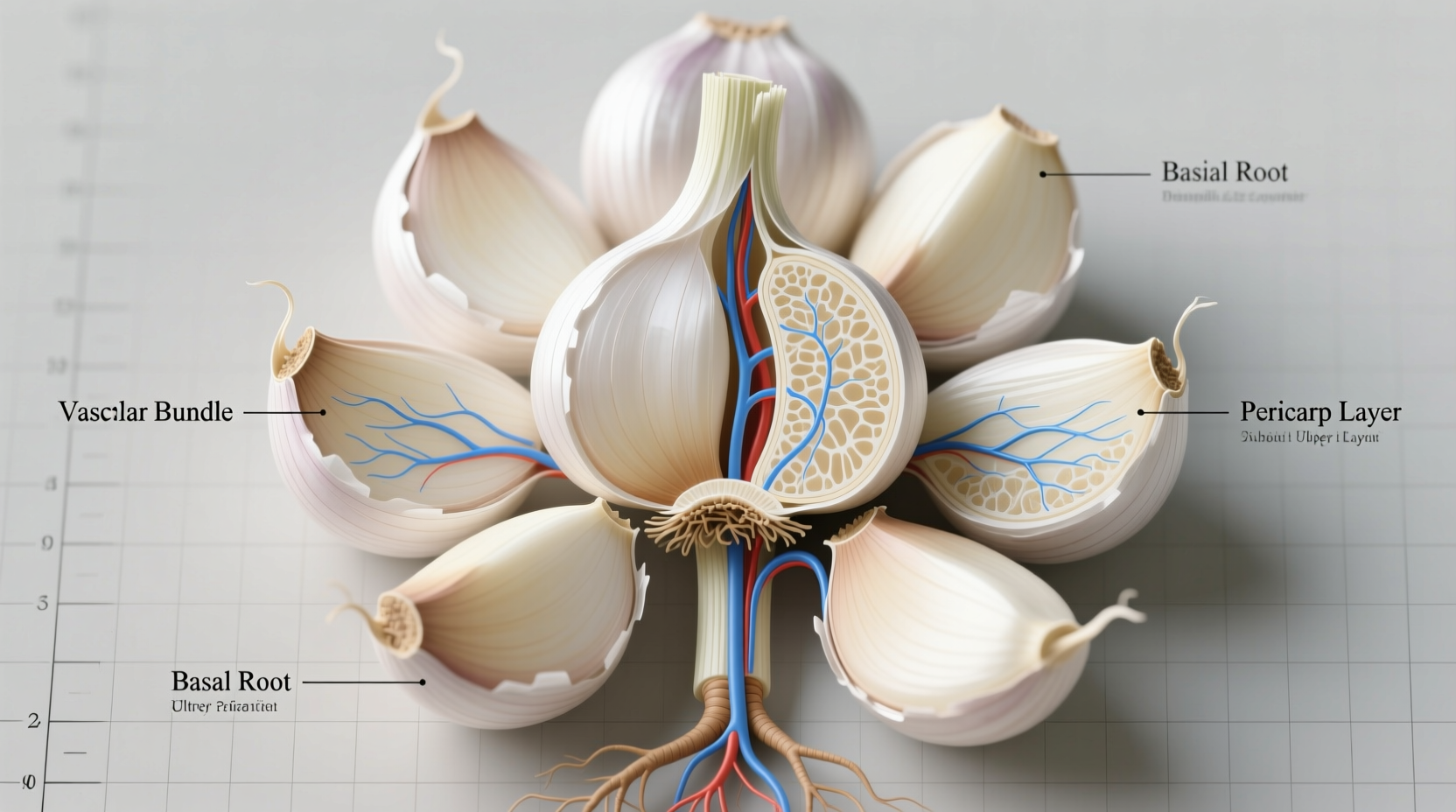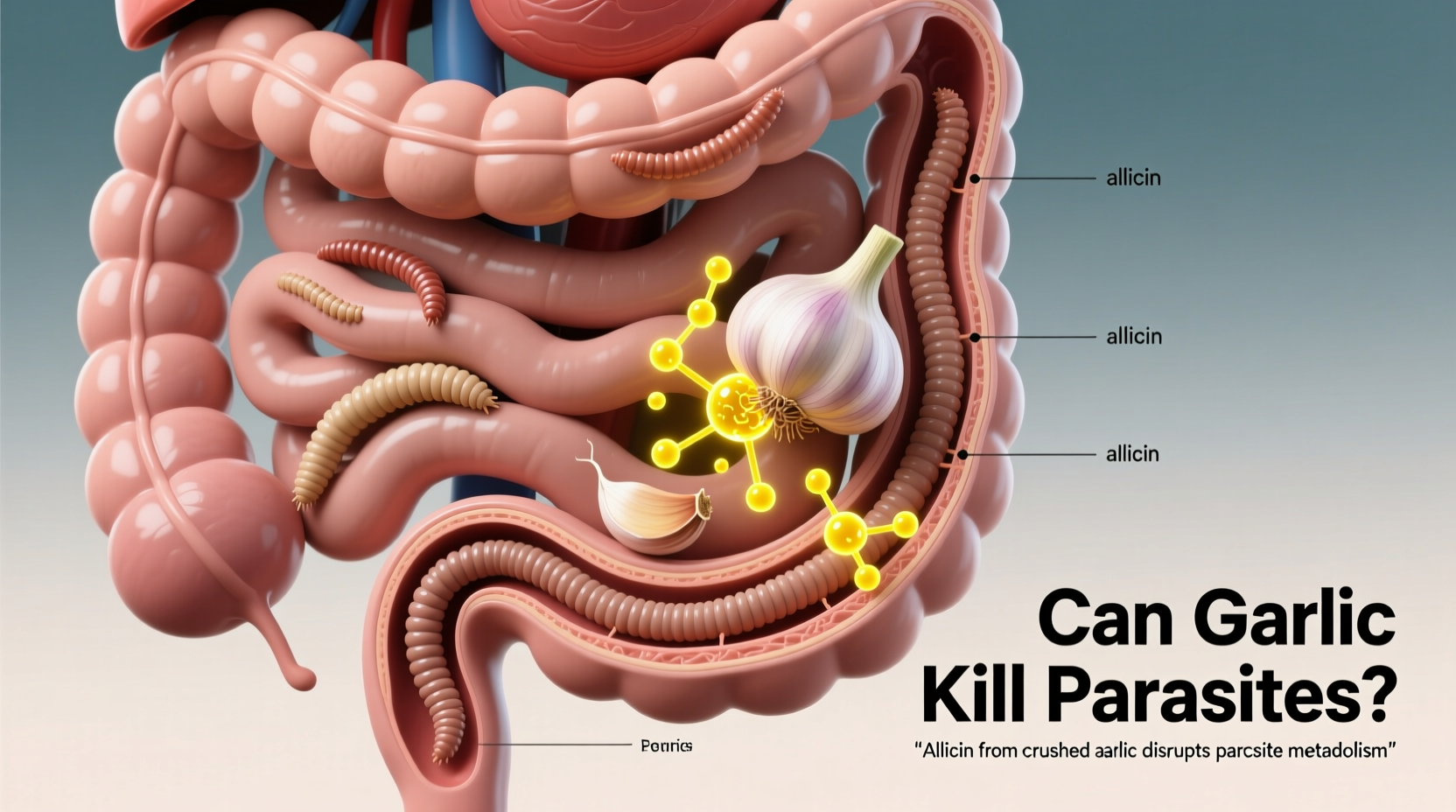When you're dealing with potential parasite concerns, you need clear, evidence-based information—not folklore or oversimplified claims. This article cuts through the noise to deliver what actually works, what's merely traditional wisdom, and when professional medical care becomes essential. We've analyzed decades of research to give you practical guidance you can trust.
Garlic's Active Compounds and Their Biological Effects
Garlic's potential anti-parasitic properties stem primarily from allicin, the sulfur-containing compound formed when garlic is crushed or chopped. This unstable molecule quickly transforms into other organosulfur compounds including diallyl disulfide and ajoene. These compounds demonstrate:
- Antimicrobial activity against bacteria, viruses, and fungi
- Disruption of parasite metabolic pathways
- Interference with parasite attachment mechanisms
- Modulation of host immune responses
Unlike pharmaceutical antiparasitic drugs designed for specific mechanisms, garlic's compounds work through multiple pathways simultaneously—a characteristic that makes laboratory study challenging but potentially valuable for complex infections.

Evidence Review: What Research Actually Shows
Understanding garlic's effectiveness requires distinguishing between promising laboratory findings and clinically proven human treatments. The scientific consensus reveals significant gaps between test tube results and real-world applications.
| Parasite Type | Lab Evidence | Human Evidence | Clinical Recommendation |
|---|---|---|---|
| Giardia lamblia | Strong in vitro inhibition | Limited case reports | Not recommended as primary treatment |
| Entamoeba histolytica | Moderate inhibition | No controlled studies | Insufficient evidence |
| Ascaris lumbricoides (roundworm) | Significant reduction in animal models | Traditional use documented | Supportive role only |
| Plasmodium (malaria) | Weak activity | No meaningful effect | Not recommended |
Practical Considerations for Garlic Use
If considering garlic as complementary support alongside medical treatment, these evidence-based guidelines matter:
Optimal Preparation Methods
Garlic's active compounds degrade quickly. For maximum potential benefit:
- Crush or chop cloves and wait 10 minutes before consuming (allows allicin formation)
- Avoid high-heat cooking which destroys active compounds
- Fresh garlic shows greater activity than aged extracts or supplements
- Raw consumption provides highest compound concentration
Realistic Expectations and Limitations
Understanding where garlic might help—and where it definitely won't—is crucial for your health decisions:
- Garlic shows most promise as preventive measure rather than treatment
- Effectiveness varies significantly by parasite species and strain
- No evidence supports garlic as standalone treatment for active infections
- Parasite resistance to garlic compounds has been documented in laboratory settings
When Medical Treatment Becomes Essential
Parasitic infections range from mild discomfort to life-threatening conditions. Recognizing when professional care is non-negotiable could prevent serious complications:
- Prolonged diarrhea (more than 48 hours)
- Blood in stool
- Unexplained weight loss
- Fever accompanying gastrointestinal symptoms
- Symptoms persisting beyond one week
The Centers for Disease Control and Prevention (CDC) emphasizes that confirmed parasitic infections require specific antiparasitic medications tailored to the parasite type. Their guidelines clearly state that natural remedies should never replace prescribed treatments for diagnosed infections.
Integrating Garlic Safely with Medical Care
If using garlic alongside conventional treatment, consider these evidence-based approaches:
- Consult your healthcare provider about potential interactions (garlic may enhance blood thinners)
- Use garlic as preventive measure during travel to endemic areas
- Maintain proper food hygiene practices to prevent reinfection
- Continue prescribed medications for full duration regardless of symptom improvement
Research published in the Journal of Microbiology and Biotechnology suggests garlic may enhance the effectiveness of certain antiparasitic drugs through synergistic effects, but this requires medical supervision.
Common Misconceptions About Garlic and Parasites
Several persistent myths create dangerous misunderstandings about garlic's capabilities:
- Myth: Garlic kills all parasites equally
Fact: Effectiveness varies dramatically by parasite species - Myth: More garlic equals better results
Fact: Excessive consumption can cause gastrointestinal damage - Myth: Raw garlic eliminates parasites within days
Fact: No human studies support rapid parasite elimination
The World Health Organization's monograph on medicinal plants acknowledges garlic's traditional use against parasites but stresses the lack of clinical evidence for therapeutic applications. Their position reflects the scientific consensus that while garlic shows interesting properties in laboratory settings, human applications remain unproven.
Practical Takeaways for Your Health Decisions
Based on current evidence, here's what actually matters for your health:
- Garlic shows laboratory evidence against specific parasites but lacks robust human clinical trials
- Preventive use may offer some protective benefits in endemic areas
- Never substitute garlic for prescribed antiparasitic medications
- Proper food handling and sanitation remain the most effective prevention strategies
- Consult healthcare professionals for diagnosis and treatment of suspected infections











 浙公网安备
33010002000092号
浙公网安备
33010002000092号 浙B2-20120091-4
浙B2-20120091-4